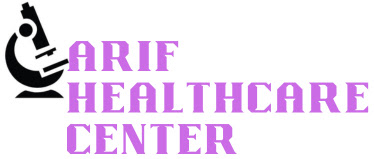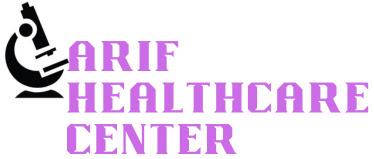The Comprehensive Benefits and Challenges of Breastfeeding: A Guide for New Mothers
Introduction
A natural and fundamental part of caring for a newborn is breastfeeding, which not only provides the necessary nutrients for healthy growth and development but also creates a one-of-a-kind bond between mother and child. Breastfeeding contributes to physical, cognitive, and emotional well-being for both the mother and the child over the long term in addition to providing immediate nutritional benefits. This essay looks at the many benefits of breastfeeding, talks about common problems that breastfeeding moms have to deal with, and talks about how important support systems are for making breastfeeding work.
The Advantages of Breastfeeding
The numerous advantages of breastfeeding extend to a wide range of health and developmental spheres.
1. Dietary Advantages:
Complete Nutrition:
Breast milk is made specifically to meet infants' nutritional requirements. It has the right amount of vitamins, minerals, proteins, fats, carbohydrates, and vitamins that the baby needs to grow and develop.
Bioactive Components:
Infant formula lacks growth factors, hormones, enzymes, antibodies, and other bioactive components. The infant's protection from diseases and infections is greatly aided by these bioactive components.
2. Benefits for Infants' Health:
Resistant Security:
The antibodies in bosom milk assist with building the newborn child's safe framework, giving security against normal ailments like respiratory contaminations, ear contaminations, and gastrointestinal sicknesses.
Digestive Health:
Breast milk is easy to digest and helps grow a healthy gut microbiome, which is important for good digestion and overall health.
Long haul Wellbeing:
Breastfeeding has been related with a lower hazard of creating constant circumstances like stoutness, type 2 diabetes, and cardiovascular sicknesses further down the road.
3. Benefits to Mothers' Health:
Post pregnancy Recuperation:
Breastfeeding invigorates the arrival of oxytocin, a chemical that assists the uterus with getting back to its pre-pregnancy size and lessens post pregnancy dying.
Reduced Risk of Chronic Diseases:
Women who breastfeed are less likely to develop postpartum depression, type 2 diabetes, and breast and ovarian cancers.
4. Psychological and Emotional Benefits:
Holding:
Breastfeeding elevates skin-to-skin contact and profound holding between the mother and the child, which is essential for the youngster's personal turn of events.
Psychological well-being:
The demonstration of breastfeeding can give profound fulfillment and unwinding to the mother, adding to generally speaking prosperity.
Common Obstacles to Having a Healthy Baby
In spite of its various advantages, breastfeeding can introduce different difficulties for new moms, which can influence their capacity to breastfeed.
1. Actual Difficulties:
Problems with latching:
One of the most common issues is getting the baby to properly latch onto the breast. Nipple pain, engorgement, and inadequate milk transfer can result from poor latch.
Nipple Pain and Infections:
Mastitis, sore nipples, cracked skin, and other infections can make it difficult to breastfeed.
2. Milk Supply Issues:
Lack of Milk Supply:
Some mothers may have difficulty producing enough milk to meet their infant's needs, raising questions about the infant's development and nutrition.
Oversupply:
Alternately, an oversupply of milk can cause issues, for example, engorgement and challenges in dealing with the taking care of cycle.
3. Way of life and Natural Variables:
Getting back to Work:
The need to get back to work can upset breastfeeding schedules, making it moving for moms to elite breastfeed.
Lack of Support:
It may be difficult for mothers to continue breastfeeding if they do not receive adequate support from family, healthcare providers, and employers.
4. Mental Elements:
Stress and Anxiety:
For first-time mothers in particular, the pressures and stress of breastfeeding can have an impact on milk production and the breastfeeding experience as a whole.
The Importance of Systems of Support
Support networks are essential for assisting mothers in overcoming breastfeeding difficulties and ensuring successful breastfeeding practices.
1. Support for Healthcare:
Lactation Consultants:
Mothers who have access to lactation consultants can get the advice and support they need to deal with latching issues, milk supply issues, and other breastfeeding issues.
Medical services Suppliers:
Pediatricians and attendants prepared in breastfeeding backing can offer significant guidance and consolation to new moms, assisting them with exploring the underlying phases of breastfeeding.
2.Community and family support:
Accomplice and Family Contribution:
Support and help from accomplices and relatives can have a massive effect in a mother's breastfeeding venture. Basic reassurance, assist with family tasks, and encouraging feedback can facilitate the weight on the mother.
Support Groups for Breastfeeding:
Joining a support group where mothers can talk about their experiences and get advice can give you a sense of community and make you feel less alone.
3. Working environment Backing:
Breastfeeding-Accommodating Arrangements:
Executing working environment strategies that oblige breastfeeding moms, for example, giving time and confidential spaces to siphoning, can assist ladies with keeping on breastfeeding in the wake of getting back to work.
Flexible Work Schedules:
Mothers may be able to continue their breastfeeding routines if they have access to flexible working hours or the option to work from home.
4. Initiatives for Public Health:
Campaigns for Education:
Public health campaigns that educate people about the benefits of breastfeeding and how to do it properly can increase community support and awareness.
Access to Resources:
Mothers can find the help they need by having easy access to breastfeeding resources like informational materials, hotlines, and online support.
Options in contrast to Breastfeeding
It is essential to ensure that infants receive adequate nutrition through alternative means when breastfeeding is not feasible or preferred.
1. Food for infants:
Nutritional Adequacy:
Infant formula is a safe and effective alternative to breast milk that is made to provide the essential nutrients for a baby's growth and development.
Particular Equations:
For babies with explicit necessities, for example, sensitivities or lactose narrow mindedness, specific recipes are accessible to meet their nourishing prerequisites.
2. Giver Milk:
Donor milk from certified human milk banks can be a viable alternative for infants who are unable to be breastfed but require the health benefits of human milk. Pasteurization and screening of donor milk ensure its safety.
Conclusion
Breastfeeding is a characteristic and exceptionally
useful practice that offers unmatched dietary and wellbeing benefits for the
two babies and moms. The experience of breastfeeding can be significantly
enhanced, and its continuation ensured by the establishment of strong support
systems that involve healthcare providers, family, community, and workplace
initiatives, despite the fact that it can present difficulties. Safe and
nutritious alternatives, such as infant formula and donor milk, are available
to ensure that infants receive the necessary nutrition for healthy growth and
development when breastfeeding is not an option.

.jpg)





0 Comments